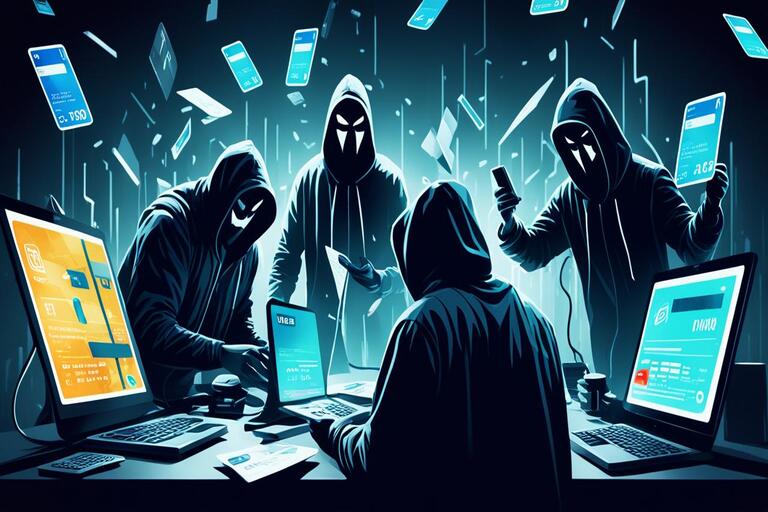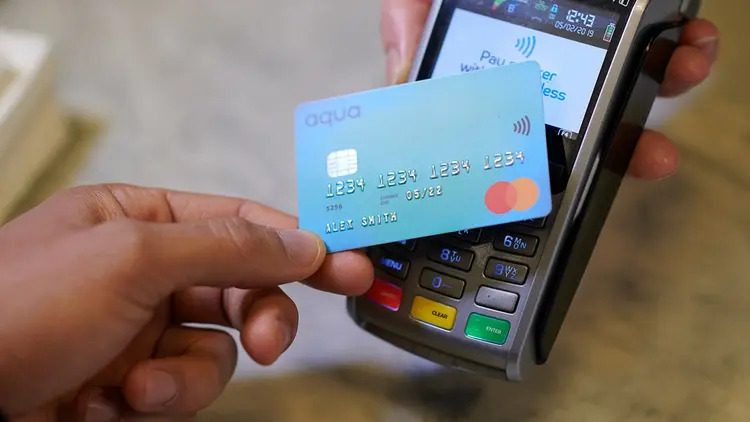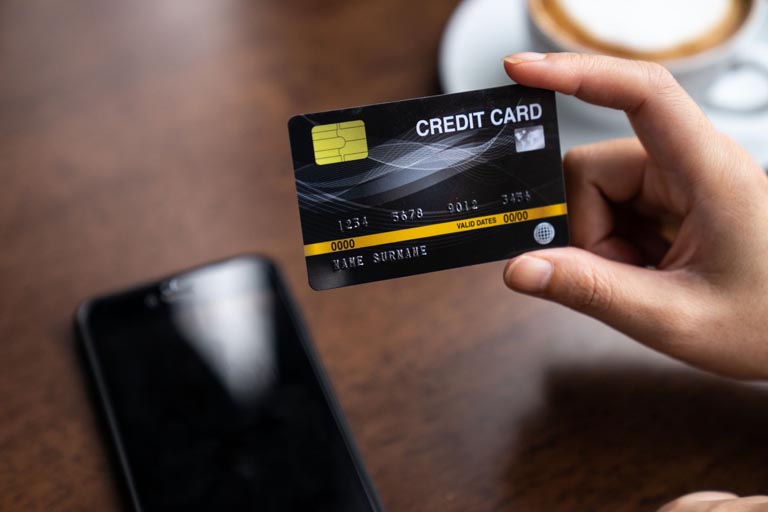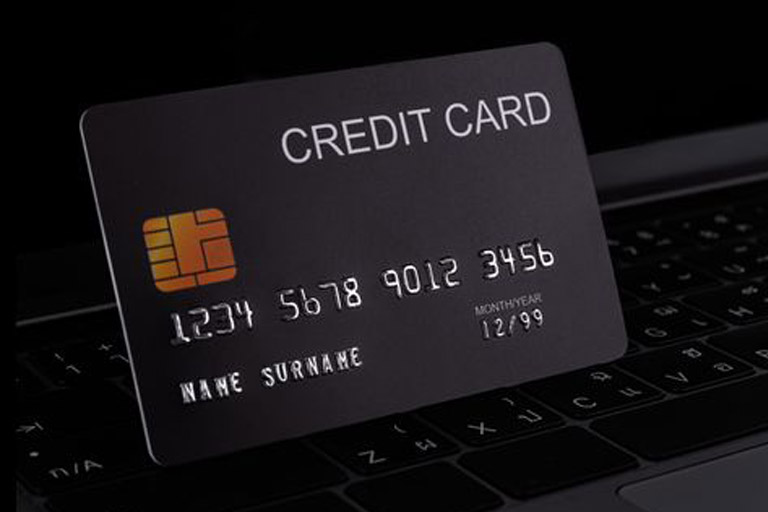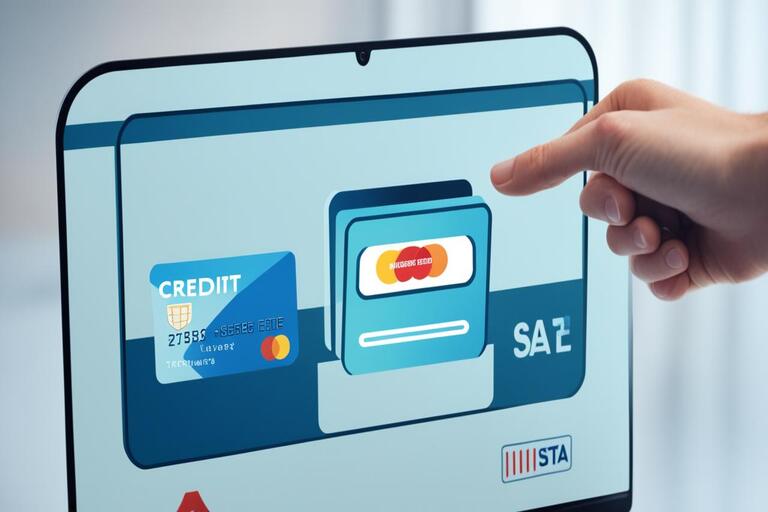
Carding Tutorial: How to Buy Real Credit Card Numbers Safely and Securely
In today's digital world, "carding" is a big worry. Cybercriminals are after personal and financial info. Carding means using credit or debit cards without permission. It's illegal and hurts many people. This article warns against it and explains the dangers and laws involved.
Carding uses a computer, a SOCKS proxy, and tools to hide the user's identity. Carders use fake addresses to get stolen goods. They also need to know specific credit card details, like the number, CVV2 code, and other information. Learning about BIN, VBV, and MSC is key to knowing how secure different cards are.
Carding seems simple, but it's very illegal. Those caught can face serious charges, fines, and jail. The risks are high, and the harm it does is bad for everyone involved. It's just not worth it.
Key Takeaways
- Carding is the illegal use of credit or debit cards by unauthorized individuals, known as "carders".
- Carders use various tools and techniques, such as SOCKS proxies and MAC address changers, to obscure their identity and location.
- Understanding credit card information formats, including BIN, VBV, non-VBV, and MSC, is crucial for carders.
- Carding is a highly illegal activity with severe legal consequences, including criminal charges, fines, and imprisonment.
- The ethical implications of carding can have a lasting impact on both the individual and the broader community.
Introduction to Carding

Carding is the illegal use of someone's credit or debit card by "carders." These are unauthorized individuals. They use the card to buy items without permission. Such acts, called credit card fraud and payment card fraud, are becoming more common. This is because we're using cashless payments more. As a result, stealing credit card info has become easier for bad actors.
What is Carding?
Carding is when someone takes and uses another person's credit or debit card info without permission. They do this to buy things, online or in stores. This info is stolen in many ways, like from the dark web marketplaces, through phishing attacks, or via malware-based theft. The main aim is to make money by selling the things they buy with the stolen cards.
Risks and Legal Implications
Doing carding is a big crime. It can lead to heavy fines, jail, and a bad criminal record. The impact goes beyond the person doing it. It raises the cost of things for everyone. Plus, it shakes people's trust in our money systems.
Understanding Credit Card Numbers

When it comes to credit card fraud, knowing how a credit card number works is key. A credit card number has important parts like the credit card number, expiration date, and CVV (Card Verification Value) code.
Card Number Format
The credit card number format follows a set way. The first number shows the card network, like 3 for American Express or 4 for Visa. The other digits give details about the payment card details and payment card information.
Expiration Date and CVV
Besides the number, you need the credit card expiration date and credit card CVV for online shopping. The expiration date shows a month and year. The CVV, a three or four digit code, is on the card's back for safety.
Knowing about a credit card's parts helps people see the risks with payment card details and payment card information.
Obtaining Credit Card Credentials
The dark web is a hidden part of the internet. You can only get there using special software. It is known for selling stolen credit card data. Cybercriminals use dark web marketplaces to sell all kinds of credit card details. These include account numbers, expiration dates, and CVV codes. Such data is very helpful for credit card fraud techniques.
Dark Web Marketplaces
Marketplaces on the dark web sell stolen payment card information. Access to these sites is through the Tor network, which keeps users anonymous. On these sites, carders, or fraudsters, can buy and sell various credit card credentials. The price varies based on the card's origin and if it includes a CVV code.
Phishing and Malware Attacks
Carders use old methods, too. They might use phishing attacks for credit card data. This trick involves pretending to be real companies to get people's card information. It's a way to find credit card credentials. Malware is also a tool. This software infects devices to steal payment card information. It's another source of stolen payment card information for fraudsters.
Verifying Card Validity
In the verifying credit card validity world, carders use several methods. They aim to check credit card status and distinguish fraudulent credit cards. A common way is through websites that charge a fee. These sites claim to extensively determine if a card is active, aiding carders in their unlawful actions.
Carders also use the "Skype method." This method involves making a call and then inputting the credit card details to see its status. Through this, they can verify the validity and decide if a card is useful for carding.
Some carders opt for a riskier approach by buying on adult websites. Though perilous, this gives them a clearer picture of the card's condition. It can help spot fraudulent credit cards that have already been tampered with.
Checking the credit card status is key for carders. It allows them to tell apart live vs. dead credit cards. Yet, it's crucial to remember that this activity is illegal. Those caught may face severe consequences.
cashing card, ccshop, cvvshop, carding tutorial, dumps with pin, dump shop
In the world of credit card fraud, there's a lot of special language. Terms like "BIN" and "VBV" help carders know more about each card. They often target non-VBV cards because they are easier to use without permission due to less security checks.
The cashing card, ccshop, cvvshop, and dumps with pin markets are big. They're places where people buy and sell stolen credit card details. Here, carders find guides and tools to abuse the payment system. This helps them commit fraud online and with credit cards.
| Product | Price |
|---|---|
| Plastic Card with $3000 amount | $300 |
| Plastic Card with $6000 amount | $500 |
| Track 1 and 2 Dumps with Pin | $50 |
| US CLASSIC/STANDARD Dumps with Pin | $90 |
| US GOLD/PLATINUM Dumps with Pin | $100 |
| UK CLASSIC/STANDARD Dumps with Pin | $75 |
| UK GOLD/PLATINUM Dumps with Pin | $130 |
| CA CLASSIC/STANDARD Dumps with Pin | $90 |
| CA GOLD/PLATINUM Dumps with Pin | $130 |
| EUROPE CLASSIC/STANDARD Dumps with Pin | $85 |
| EUROPE GOLD/PLATINUM Dumps with Pin | $140 |
Credit card fraud is a major worry today. Stolen card information is easy to find on the dark web. Big breaches like those at Capital One and Canva have put many people's money and privacy at risk. We all need to be more careful and use better security to fight this kind of crime.
Using Anonymity Tools
Keeping your identity hidden is key when you're involved in carding. This helps avoid getting into trouble with the law. Carders use special tools to keep their personal details secret and protect themselves online. Two common tools are Virtual Private Networks (VPNs) and the Tor browser.
Virtual Private Networks (VPNs)
VPNs are often chosen for their ability to mask IP addresses and secure internet traffic. With a VPN, a carder can connect through a different, secure server. This makes tracing their real location harder for authorities or companies. VPNs help carders stay anonymous when using VPNs for carding and hide their IP address for carding.
Tor Browser
The Tor browser is also popular among carders. It bounces internet signals through a series of volunteer servers, hiding the user's location well. It's highly sought after by those using Tor browser for carding and staying anonymous when committing payment card fraud. Carders often combine the Tor browser with other tools to maximize their safety and avoid being found out.
These anonymity tools are used by carders to hide their IP address for carding and stay anonymous when committing payment card fraud. Their goal is to lower the chances of being discovered and stopped by law enforcement. However, using these tools is not a guarantee that you won't face legal actions. The authorities are always working on new ways to catch people involved in illegal activities, including carding and credit card fraud.
Carding Methods
The art of carding means using tricks to get credit or debit card info. It's for personal gain, fraudulently. There are two big types: online carding and physical carding.
Online Purchases
One way is to buy things online with fake or stolen card details. They trick or infect people with malware to get these details. They shop online with the fake cards and get the items shipped somewhere fake.
Physical Carding
Physical carding is a big threat too. Here, they use tools like skimmers and hidden cameras to steal card info from the card itself. Then, they can make fake cards and buy stuff at places like stores or ATMs.
Staying Anonymous and Secure
When carding, keeping your identity hidden is very important. Carders use many tools to stay anonymous and avoid getting caught. We'll look at some ways carders stay hidden and secure while doing illegal activities.
Secure Payment Gateways
Carders look for secure ways to pay that won't trace back to them. They might use VPNs to hide their location or Tor to keep their online moves secret. These anonymity tools help them stay anonymous when carding and avoid detection.
Cryptocurrency Payments
Recently, carders have turned to cryptocurrency for its secure features. Cryptocurrencies offer a lot of privacy and are harder for officials to follow. This makes it easier for carders to commit fraud without getting caught.
Carders can mix secure payment methods with cryptocurrency to be even safer. However, what they're doing is against the law and has serious consequences. We'll talk about this more in the upcoming sections.
Drop Services and Shipping
When people do carding, they rely on "drops." Drops are places where they ship the items bought with stolen credit cards. It's crucial that the billing and shipping addresses match. This helps avoid any suspicion.
Carders use different shipping addresses such as empty homes, rented mailboxes, or other people's houses. These places help carders get their hands on the bought items without getting caught.
Carders also need to think about the best shipping options. They choose from shipping companies like FedEx, DHL, UPS, and EMS. Each company offers different delivery times and tracking capabilities.
Using drop services for carding, carders aim to stay hidden and successfully get their fraudulently bought items. But what they're doing is wrong and illegal. If caught, they can face serious legal trouble.
Ethical Considerations
Exploring the tech behind carding highlights its ethical matters. Ethical concerns with carding, moral implications of credit card fraud, and the societal impact of payment card fraud must be considered. These are crucial aspects often overlooked.
Carding and credit card fraud break the law and hurt many. They damage individuals, businesses, and the community. Stolen financial info can cause big problems, like loss of money, lower credit scores, and emotional pain. Moreover, the societal impact of payment card fraud reaches widespread, hitting consumers with higher prices and fees.
Stealing credit cards has big moral implications of credit card fraud. Such acts ruin trust in the economy, which is bad for everyone. Criminals often target the most vulnerable, making society's problems worse. It's not just about money; it's about fairness and treating others right.
Understanding the ethical concerns with carding is crucial for all. The urge to do wrong may be strong, but the end results are usually terrible. Recognizing the harm of credit card fraud helps us make better choices. Legal ways to make or earn extra money are available, so we should choose those.
Legal Consequences and Risks
Carding and credit card fraud are not worth the risk. They can ruin a person's life. This kind of fraud is a major crime. People caught doing it face big fines and even prison time.
In the U.S., the prison sentence for credit card fraud can be very long, from 10 to 30 years. It depends on how big the crime was. You could also get in trouble for things like identity theft and wire fraud. Each has its own legal consequences.
Doing carding can mess up more than your record. You might find it hard to get a job, a house, or a loan. It could even stop you from traveling to other countries.
The dangers of payment card fraud go beyond the law. You could become a victim of identity theft yourself. And don't forget about the cybercriminals who may seek revenge. These crimes also hurt other people and businesses, making life more expensive.
In the end, the risks of carding are just not worth it. It's much smarter to look for legal ways to make money. This protects you from the heavy legal consequences this crime brings about.
Alternative Methods for Earning Money
Exploring carding and credit card fraud, it's key to know they are illegal. They have serious legal consequences and hurt both people and society. Instead, we urge you to look into legitimate, ethical ways to make money. This is crucial for your own wellbeing and the good of all.
Freelance work shows a lot of promise. Websites like Upwork, Fiverr, and Freelancer.com allow you to show off your skills. You can find work worldwide, whether you write, design, develop websites, or have special knowledge. This makes freelancing a solid way to make money legally and ethically.
Starting your own business is another great choice. It can turn your passions or ideas into a steady cash flow. You have many options, from selling online to offering local services. With hard work, creativity, and sticking to ethical methods, you can have a thriving business without the need for illegal schemes like credit card fraud.
The gig economy has also created lots of chances to earn money. Jobs with flexibility, like driving for a ride service, delivering food, or picking up quick tasks, are plentiful. They offer a regular income and let you keep a balance between work and personal life. This way of making money is both legal and ethical, providing a safe alternative to carding.
Always remember there are legitimate ways to make money. By choosing ethical paths, not only do you steer clear of credit card fraud's dangers, but you also benefit your community. You can work towards a secure, successful future for yourself and those around you.
Conclusion
As we end this guide on carding, it's vital to stress the dangers. Unauthorized use of credit and debit card info is a big crime. It can hurt people, companies, and our society a lot.
In this article, we looked at how carders work. They use the dark web, fake emails, and bad software to get your money details. We talked about checking cards are real and how to stay hidden if you're doing something wrong. We saw both online and real-world ways carders try to steal.
But remember, carding is wrong and against the law. You could get big fines and a long time in jail. It also makes everything cost more, makes being safe harder, and trust in money less.
Instead, try finding good, honest ways to make money. Doing freelance jobs or starting your own business are great. By choosing what's right, you help everyone and make a better future for yourself and others. For more information: cashing card
FAQ
What is carding?
Carding happens when someone uses a stolen credit or debit card to buy things. This is done by an unauthorized person called a "carder".
What are the risks and legal implications of carding?
Carding is very illegal. If caught, a carder might face big fines and even go to jail. It can also affect their future job opportunities because it stays on their record.
What is the format of a credit card number?
A credit card number includes the number itself, the expiration date, and the CVV2 code. It also has the cardholder's name, address, city, state, country, and zip code. Sometimes it includes a phone number too.
How do carders obtain credit card credentials?
Carders get credit card details from illegal places like the Dark Web. They may also use phishing or malware attacks. But remember, doing this is against the law.
How do carders verify the validity of credit cards?
Carders might check the card using a website that charges a fee. Or they might try using it to buy something on a porn website to see if it works.
What is the difference between BIN, VBV, non-VBV, and MSC?
These terms tell us how secure different types of credit cards are. Non-VBV cards, for example, are often chosen by carders for their illegal activities.
What tools and techniques do carders use to maintain anonymity?
To stay anonymous, carders use tools like computers and proxies. They also change their MAC address and use Remote Desktop Protocol (RDP).
What are "drops" in the context of carding?
"Drops" are where carders have their fraudulently bought items sent. It's important the billing and shipping addresses match to avoid trouble.
What are the ethical concerns and societal impact of carding?
Carding and credit card fraud harm many, from individuals to businesses. It is crucial to think about the ethical side of these crimes.
What are the legal consequences and risks associated with carding?
Getting involved in carding and fraud could lead to serious trouble. This includes both legal punishments like fines and jail, as well as long-term effects on your future chances.
What are some positive and constructive alternatives to carding?
Instead of crime, there are many good ways to earn money. You can do freelance work, start your own business, or join the gig economy. Always choose legal and ethical paths.
